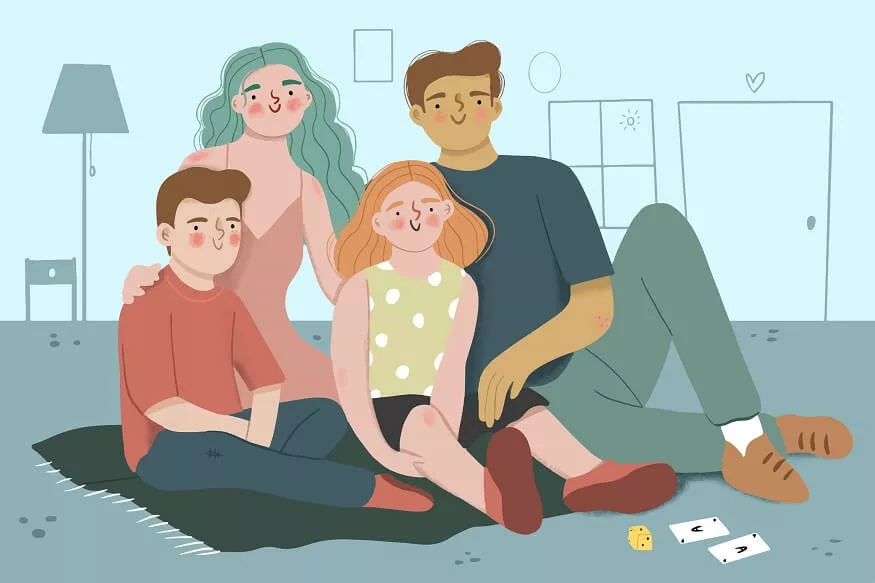The habit of lying among children is common; however, it can become a worrying behaviour for parents. This behaviour can stem from various factors that require appropriate and timely interventions to correct it.
In this blog, we will explore effective strategies and tips on how to make children stop lying and guide your child towards integrity and honesty.
Also Read: Ways to Teach the Importance of Honesty to Kids
1) Understanding the underlying reasons
Before addressing children’s lies, it is crucial to understand why they lie. Sometimes kids lie to avoid trouble, desperately seeking approval or acceptance, or simply because they lack the skills to clearly express their feelings. They might also lie because they find it easier than explaining the truth. Lying, at times, can be a sign of an underlying emotional issue which your child might be experiencing and is trying to cover up.
Take time to talk to your child in such situations. Understanding the root cause is vital in addressing the issue. It can help you suggest appropriate solutions and support your child with any challenges they might be facing.
2) Build a trustworthy relationship
One of the first steps to curb lying habits in kids is to foster an environment of trust at home. Children are more likely to speak the truth if they trust that you will not unjustly criticise or punish them. When kids feel safe admitting mistakes, they are less inclined to lie. It is vital to establish a safe, non-judgmental environment at home. When your child admits to a mistake or shares an uncomfortable fact, respond with understanding and empathy. Be appreciative of their honesty and tell them how much you care for them.
Consistently praise your child whenever they tell the truth, regardless of the circumstances, creating a positive reinforcement for honesty. The positive feeling that comes with being praised for telling the truth will eventually outweigh the perceived benefits of lying.
Also Read: How to stop your child from bullying others
3) Allow them to correct their lies
When you catch your child in a lie, instead of immediately accusing them, give them a chance to correct their story. This approach demonstrates trust and encourages honesty. Avoid overreacting to a lie and instead use the opportunity as a teaching moment to discuss honesty, truth and integrity.
Encourage open communication with your child by actively listening to their feelings and concerns. Make consistent efforts to ask them about their day at school, friends, and any challenges they are facing. When children feel heard, valued and respected they talk about issues without resorting to lies.
4) Emphasise the consequences of lying
Teaching honesty to kids is vital, but it is also crucial for kids to grasp the outcomes of lying. Explain how it damages trust and relationships, impacting opportunities and leading to consequences. Kids might lie to dodge consequences, hence empowering them to face challenges helps build responsibility and problem-solving skills.
Also Read: What is Educational Psychology? Importance and Activities
5) Be a role model
Children learn more from what they see than from what they are told. Set a strong example for them by always being honest in your dealings with others. Avoid telling lies or manipulating the truth in front of your child. Be vulnerable, admit your mistakes, and apologise when necessary. Your integrity will inspire them to value honesty.
6) Talk About Honesty
Discuss the concept of honesty and why it is important in day-to-day interactions. Use stories or real-life incidents to exemplify the significance and benefits of honesty versus the repercussions of lying.
Limit their exposure to lying and dishonest behaviour. Monitor the media they consume. Online shows, TV shows, movies and games. Choose age-appropriate content that promotes honesty and integrity.
Also Read: How to Prevent Bullying in Schools
7) Handling Lies Appropriately
When a child lies, reacting with anger or disappointment might make them feel defensive and encourage further lying. Keep calm when addressing the lie, avoiding confrontation. Give your child a chance to explain why they felt the need to lie, assuring them of your trustworthiness with the truth.
Set age-appropriate rules and consequences for lying and make sure your child understands their boundaries. Setting clear expectations is critical for stopping your child from lying.
Be clear and specific about what behaviours constitute lying. Explain what dishonesty looks like with examples and stories. Involve them to set out the rules of honesty and the consequences of dishonesty in life. Ensure you apply these rules and consequences consistently and firmly. Involving them in the process will ensure ownership of the rules and willingness to follow them.
8) Be patient and respectful
Changing or developing a behaviour takes time. As children grow, they learn human values along the way. They are likely to make mistakes. Be patient as they grasp the importance of honesty and integrity. Help them to reduce the temptation to lie.
Ask them for the truth without branding them as “liars”. Reinforce honest behaviour with rewards, recognition and praise. This builds their confidence to be truthful about situations in their life to you.
Getting a child to stop lying is a gradual process. By creating a safe, encouraging, and honest environment, you can foster a healthy relationship with your child, where they feel secure enough to always tell the truth.
Every child is unique, and their reasons for lying vary. It is crucial to handle the situation with patience, understanding, and kindness. Encourage expression, praise honesty, make them aware of the consequences of lying, and set a good example. Instilling values of honesty and trust early on will not only lead to consistent honest behaviour but also help them strengthen their relationships with the people around them.
For more such interesting blogs, Visit EuroSchool.











